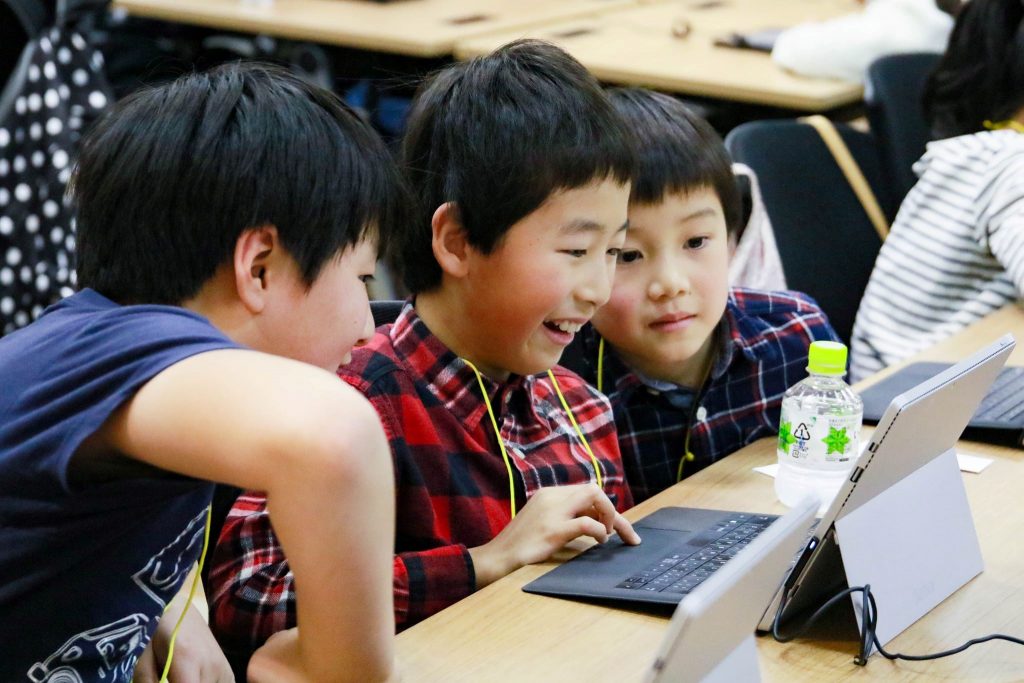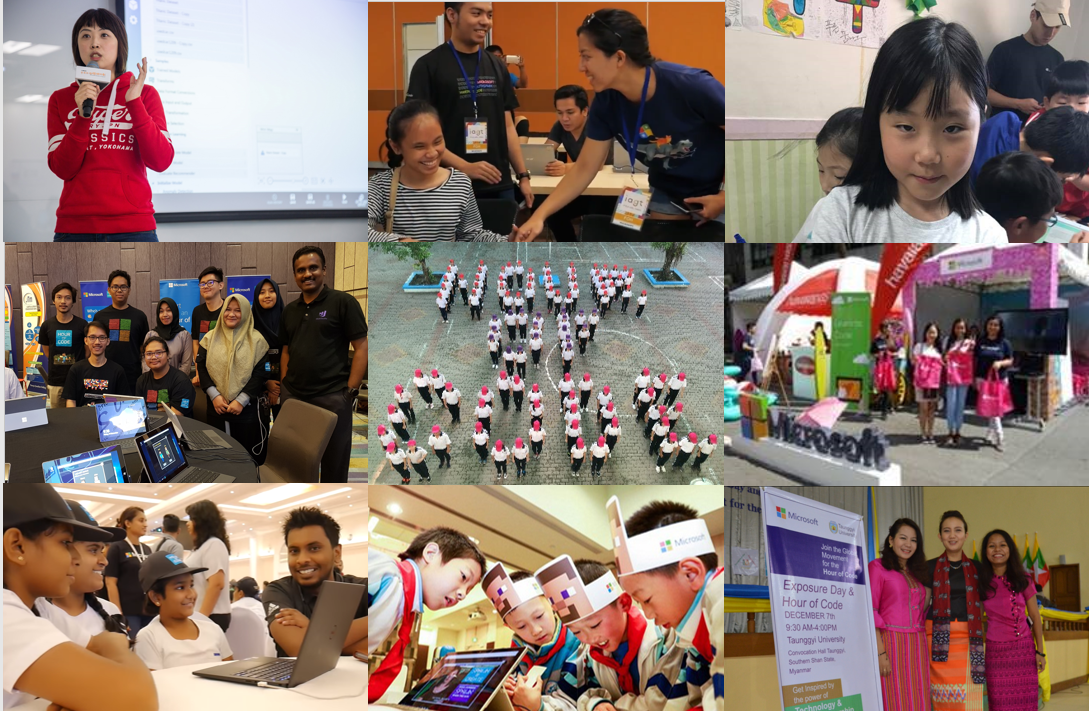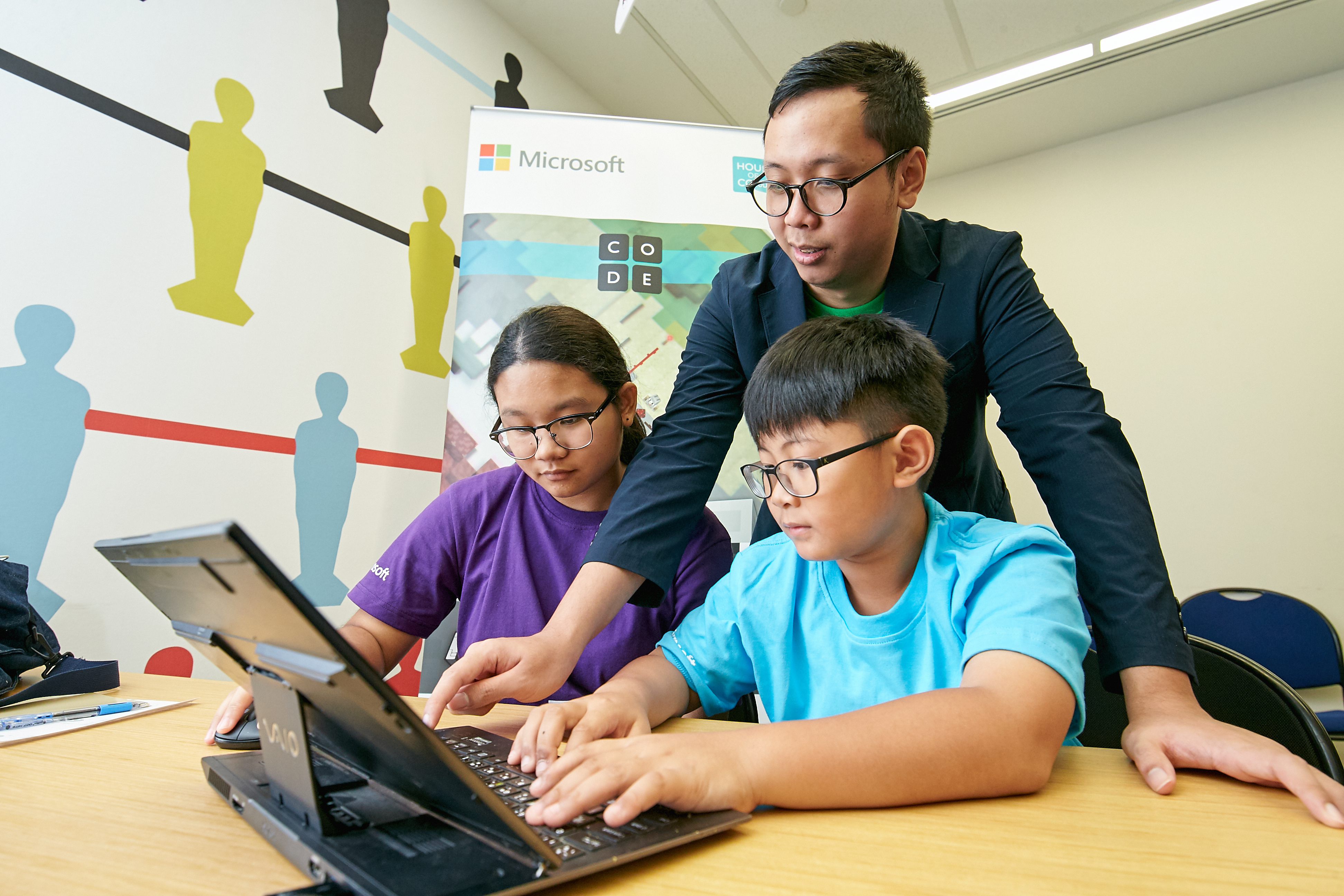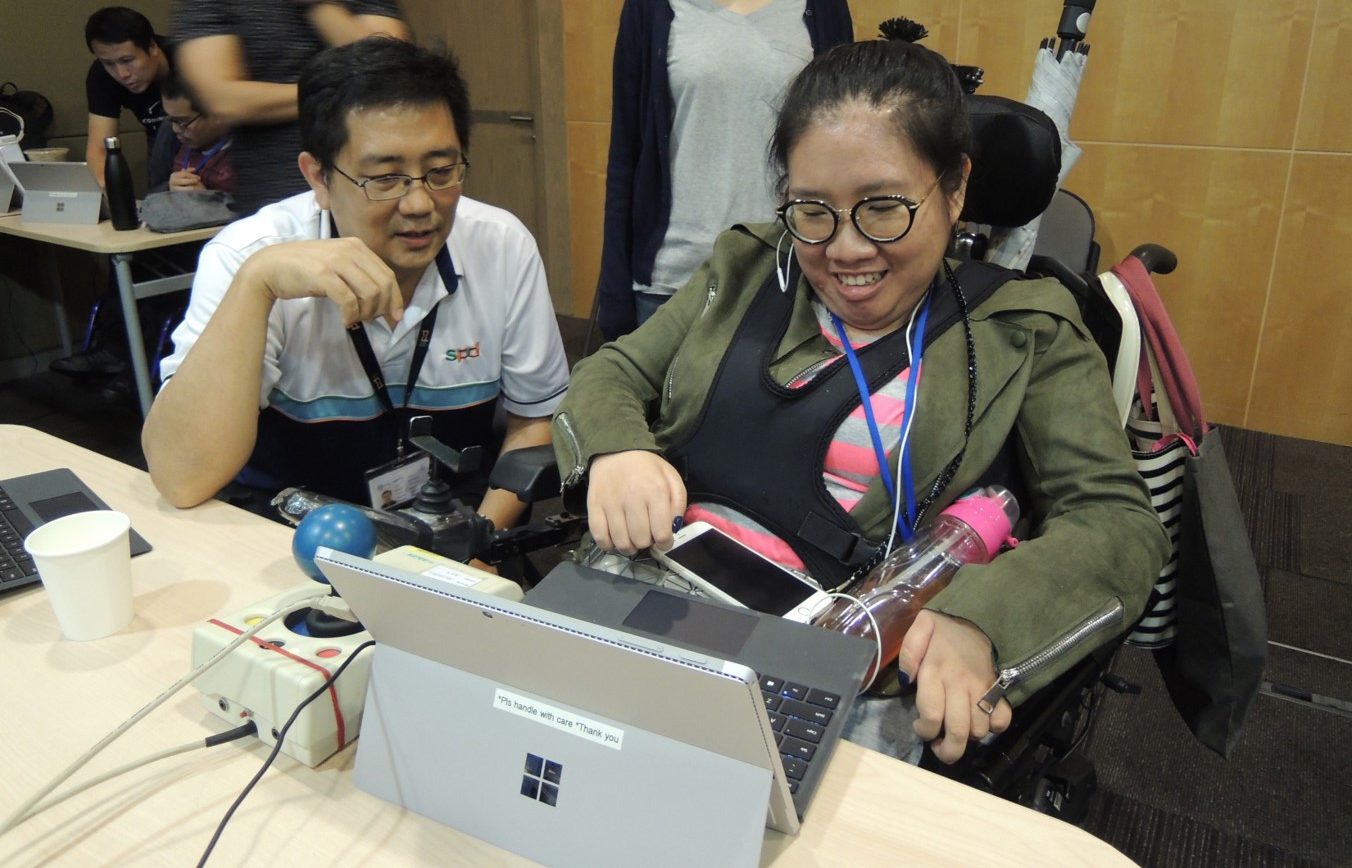
Coding the way to a brighter future in 2018 & beyond
As the world ushers in 2018, there are many reasons to celebrate the new year. For hundreds of thousands of youths who participated in the Hour of Code across Asia, one reason is that they are already starting the year on a bright note. After all, they have been introduced to skills that will be closely relevant to their future.
In December, with the support of more than 500 Microsoft volunteers and 227 partners, Microsoft conducted and supported 650 Hour of Code events in 1,025 schools in 342 cities across 16 Asian countries. These events gave 257,000 youth from all walks of life, including those from the underserved and rural communities, the opportunity to write their first lines of code. The company also helped train more than 3,110 educators. In total, more than 1,024,720 Hours of Code happened in December in Asia according to Code.org.

The Future Belongs to Those with Digital Skills
Youth face a future unlike that of any previous generation due to technology. However, there are still gaps hindering youth from learning digital skills – from the lack of access to technology, knowledge and mentors, to misconceived notions that coding is only important when pursuing a technical career, to gender stereotypes. These barriers threaten the next generation’s ability to dream big.
Starting the Digital Skills Development Journey with the Hour of Code

For example, in China, about 200 primary school students attended the Hour of Code event at the Microsoft Beijing office to experience the new Minecraft Hour of Code tutorial: Hero’s Journey. Microsoft also worked with the Guangzhou Library to announce the “Hour of Code Computer Science Education Month” where readers could visit the library to learn coding at any time during December.
In Hong Kong, schools and nonprofits were encouraged to upload pictures of their coding classes as part of the Happy Coding contest. A happiness score was attributed to each of the 400 pictures submitted, using Microsoft’s Emotion API on Azure to identify the top 10 classrooms with the “happiest” score.
In Sri Lanka, Microsoft partnered with social celebrity Chanux Bro, who shared on his social media platforms live videos from the Hour of Code event, hosted at the House of the Prime Minister.
While in Thailand, popular Thai Minecraft gamecaster, LeePung, partnered with Microsoft to conduct an Hour of Code session at his studio, which helped to spread enthusiasm for coding to over 1.5 million of his fans.
In Vietnam, a wave of Hour of Code events reached out to 68,000 children, in partnership with 270 schools, nonprofits and government entities. Online competitions were hosted on digitalskill.vn, a website where kids can continue learning.
Advancing a Future for Everyone

As technology advances, Microsoft is also committed to ensure that people are not left behind in Asia. That is why a number of Hour of Code activities were designed to be inclusive and engaged different groups.
In Singapore, Microsoft supported the nonprofit SPD to organize a full week coding bootcamp at its office. 30 young adults with disabilities were trained by Coding Garage to create their own website using HTML and CSS.
In Philippines, Microsoft was engaged as the official coding partner for It’s a Girl Thing, a festival in Manila designed to inspire and educate young women. It features an extensive line-up of renowned social stars who delivered talks and performances. Microsoft leveraged this platform to ignite the interest for STEM in more than 600 teenage girls while certifying 76 for the Hour of Code.
In Taiwan, Microsoft organized a Coding Angels bootcamp where 100 female students experienced hands-on Azure Machine learning courses. Attendees learned how to build web applications that can make predictions based on databases.
Creating Systemic, Long-Term Change with Partners

Addressing social and economic challenges requires a long-term view and systemic approach. With this in mind, Microsoft created Hour of Code initiatives that engage and train partners and educators. This will equip them with the capabilities to organize their own digital skills programs, enabling more youth to skill up for the future.
In Korea, the nonprofit JA Korea, in partnership with Microsoft, developed JA KODU World, an educator curriculum recently certified by the Ministry of ICT as part of the nation’s mandatory computer science education push for elementary schools. More than 180 teachers have been trained in partnership with the Ministry and KOFAC, expanding capabilities of local educators in delivering computer science syllabus in schools.
In India, more than 100 Microsoft Student Partners (MSPs) were trained to conduct Hour of Code sessions in 20 locations across different states.
In Indonesia, the Hour of Code and Skype-a-thon activities were organized in 10 schools with 350 participants, as well as a talk show with the on-demand transport provider Go-Jek. Schools engaged in a friendly competition with a Minecraft Education Contest that triggered interest for gamification in the classroom.
In Japan, educators and youth were trained during Hour of Code activities in partnership with Microsoft Innovative Schools, Minano Code, and other corporations.
Without a doubt, the coding activities that these youth experienced will open their eyes to endless future possibilities. And this will, in turn, unlock Asia’s digital future. Microsoft is committed and will continue to work tirelessly to provide every young person with the skills, knowledge and opportunity to succeed in 2018 and beyond.
Discover our free resources to empower all young people through computer science education and digital skills by visiting http://microsoft.com/digitalskills/learn-how/families
To read more about Microsoft Philanthropies’ work to build future ready generations in Asia, click here.













